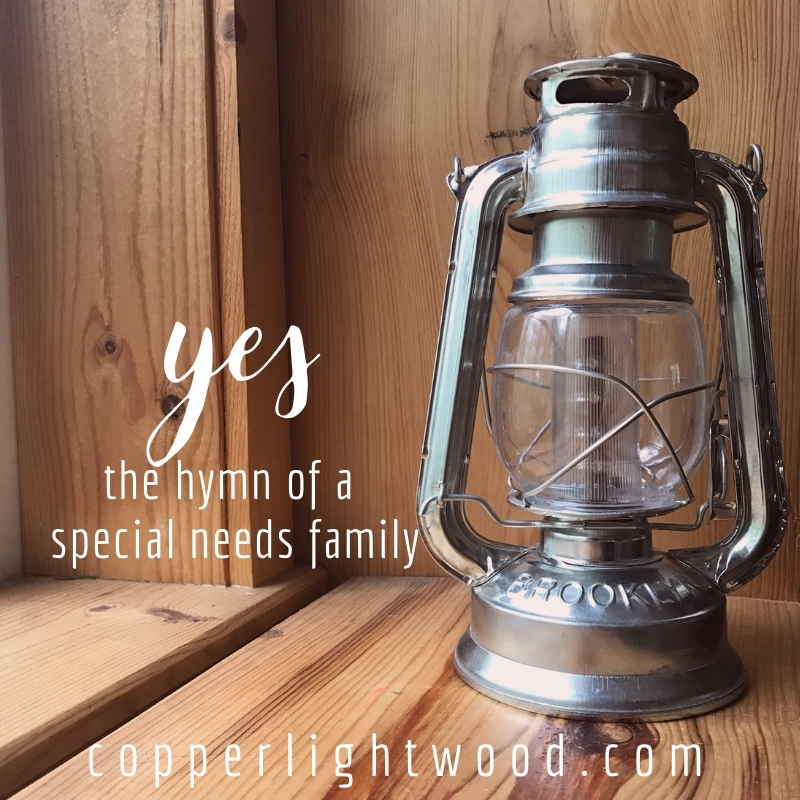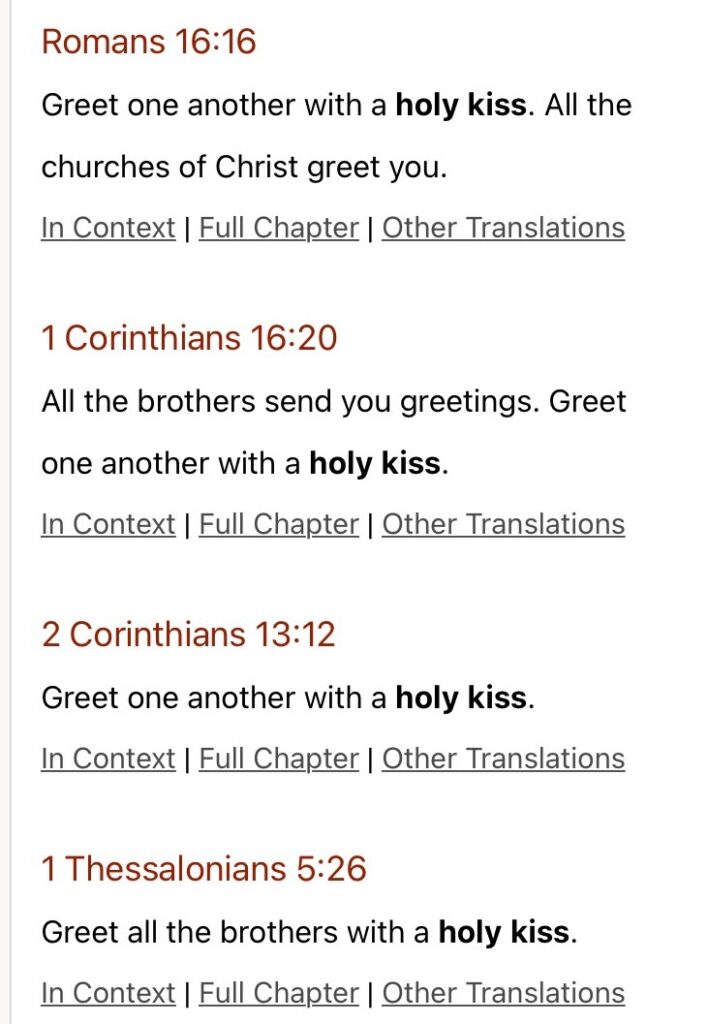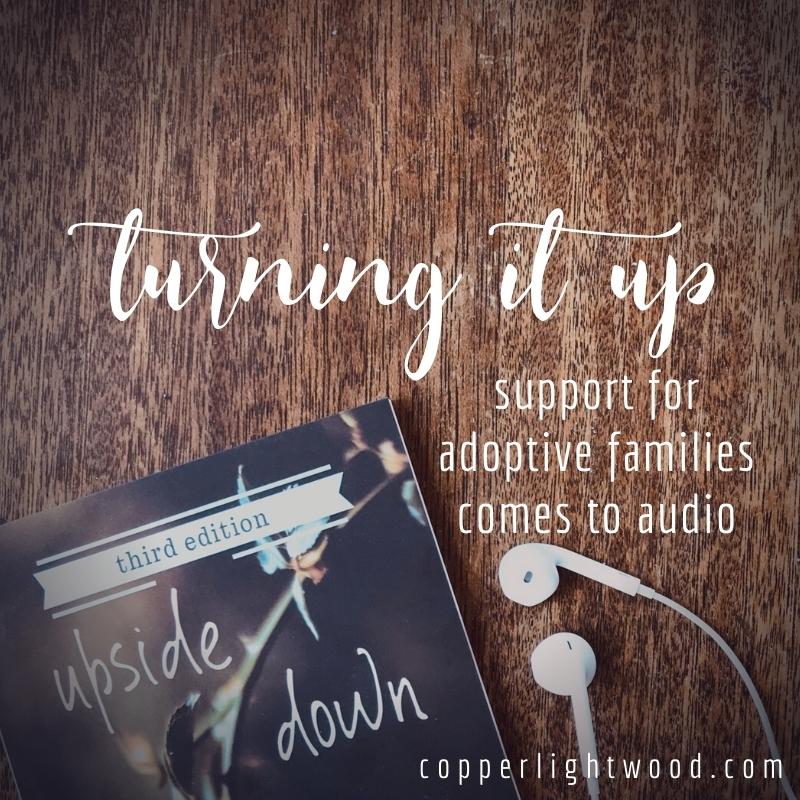The day we met Reagan is the day we made the decision. We’d read all the translated paperwork and what little history there was to give us. We understood about delays, physical, emotional, and cognitive. We knew there would be years of catching up to do.
And then she walked into the room, and all that changed. No eye contact, a little overly compliant in some ways, and constant stimming movements that indicated institutional autism. Still, at almost seven, a toddler.

In retrospect, the paperwork we’d received was a positive spin on things, leaving out crucial information that we filled in later as best we could. And I guess I followed its lead, because during that first week of getting to know Reagan, I blogged only a few times and put the same kind of spin in those posts. There was too much to think about and process. And I don’t remember when Fetal Alcohol Syndrome came into our daily vocabulary, but we knew that first day that her needs were not what we thought we had signed up for.
That first day, meeting her in her orphanage, we realized we needed to make a different kind of decision.
Will you still say yes? the Lord asked us. And we did. We have said yes every day for the last ten years. It has been imperfect, victorious, clumsy, gritty, and stubborn, but it has always been yes.
So I guess I don’t like it when professionals who are new to our family decide to lecture me on things I have lived with all these years while they have sat comfortably behind a desk.
“FAS can be very…ahh…” The doctor hesitated, apparently looking for the right words. “Difficult…to live with. And…long-term…there are many issues that need to be considered –”
“We adopted Reagan ten years ago, and it was a two year process. We’ve had twelve years of considering. We know what we signed up for, and it wasn’t to foist her off onto some government program as we get older.”
“Ohhh, well, good. Yes, I completely respect that.”
But then she hesitated again. I was pretty sure I knew where she was trying to go, and she confirmed it with her next sentence.
“The, um, challenges involved with Fetal Alcohol damage are lifelong, and I don’t know how old you are…”
Why is it that professionals with letters after their name and only two sentences of information about our kid feel it their duty to tell a parent the obvious? Which one of us has spent years caring for the child, twenty-four seven?
Frustrated with the beating around the bush, I brought out the chainsaw to help her out.
“We already know we will never be empty nesters.” No cure, irreversible damage, yes, we get it.
“Ohhh, okay,” she said, obviously relieved.
But I wasn’t done. I’m not sure what kind of idiot parents she usually deals with, or if she’s just another professional without personal experience who assumes parents need the expertise of someone who has spent more time studying special needs than actually living with them. But ignorant condescension fries me.
“We’re not contacting you because we’re new at this,” I said. “We’ve been her parents for a long time. We’re not suddenly at a loss for what to do with her.”
“Oh!” she said, surprised. “Why are you contacting me?”
“Because
apparently Reagan needs to have this testing done in order to stay in
her current school program.” It’s a hoop we have to jump through,
nothing else.
“Oh!” she said again, and once on level
ground, we finally got into the details of the assessment.
But really, this assessment is more than a hoop. It will be an IQ test and several other “instruments” (alas, not the musical kind) that test Reagan’s cognitive functioning and achievement. It will be results, and labels, and numbers. It will be many things I don’t really want to know, and many other things that we already know that will suddenly, miraculously, become official because an expert who will spend less than an hour in Reagan’s presence will finally verify them.
Yippee. Pardon me if I don’t applaud.
I am completely torn about it. We adopted her to keep her from being a cog in a wheel she would not have survived. We homeschool to keep our kids from being plugged into systems that strip nearly all individuality and innovation. But Reagan is now officially in high school, and to keep her current homeschool program that she enjoys and is gaining small measures of victory in, she must be slapped with codes and spectrums and assessments to validate her presence there.
“It’s just a number,” the doctor hastened to reassure me. Yes, I agree…but it’s so much more than a number, too. It is like the brain scan conundrum – for years we toyed with the idea of having one done, curious about the amount of damage Reagan is actually living with. But if we saw it, would it matter? Would it be a relief? Or would it leave more questions than answers?
Here’s the real question: Would it remove our faith for a miracle? That’s the one that causes bile to rise and my eyes to water. Sometimes we know too much, and it gets in the way of what God wants to do.
I had a dream once, years ago, that Reagan could speak clearly, perfectly, just like you and me. Long, clear sentences, enunciated words. In the dream she was an adult, a beautiful woman.
She’s getting there physically, at least. Sixteen and beautiful, but not an adult. Without divine healing, she will never be an adult.
Behold, the Lord God comes with might,
and his arm rules for him;
behold, his reward is with him,
and his recompense before him.
He will tend his flock like a shepherd;
he will gather the lambs in his arms;
he will carry them in his bosom,
and gently lead those that are with young.
– Isaiah 40:10-11
Every year on her birthday I am astounded by her new age, but I think we’ve finally hit the point where it no longer surprises us and that grieves me, too, because it feels like jadedness. In a few years it’ll be, “Oh, Reagan’s twenty.” Later, it’ll be “Reagan just turned 27.” And people will continue to drop their jaws in polite disbelief, not understanding or having any frame of reference for her abilities, or lack of them, or for how far she’s come, or what she went through to make it all so difficult in the first place.
In typing that, I pull my hands away from the keyboard, and cover my face with them, and weep. It is the hymn of a special needs mom.
I do not know if she will change. I do not know if we did enough, or are doing enough. I know what I would tell a friend in the same place, of course, and what you would probably tell me, but I also know there are so many things I could and can be doing differently.
But like most special needs moms, I am tired. Exhausted. Overwhelmed. I feel lazy if I take a break, but I need breaks, so I take them, and then I accuse myself of laziness. I waver between radical hope and weary cynicism, and the whiplash between the two makes me dizzy and confused. The future is coming fast and I can’t control it. She will always need help, and we may not always be here to give it to her.
For crying out loud, I know.
I know that when we signed up for this, we signed our biological kids up, too, and I also know that wasn’t fair for anyone. But what Reagan was born with and went through and lives with isn’t fair, either. For her to live at all required a family to step up for her, and God called us to be that family.
So there is no fairness; there is only goodness and endurance and love.
There is the sacrifice of praise.
There is the Word, and His promises in it that never fail and are always fulfilling. As long as she is young, He will lead me gently.
There is the Yes of Surrender that makes room for the miracle, and sometimes the first miracle is what happens in us as we give it.



